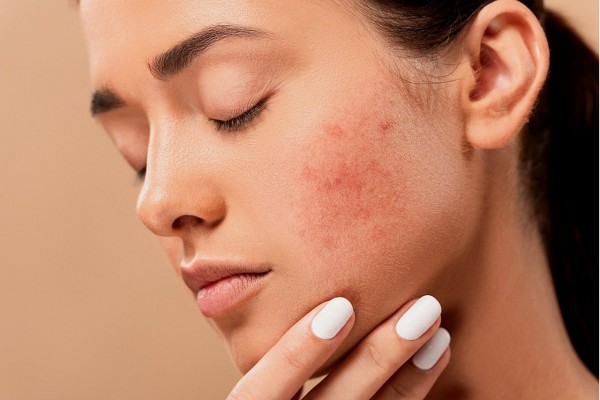You Might Be at Risk for Depression if You Are Taking Isotretinoin, Here’s What Dermatologist Says
A history of previous depressive illness is said to have a sevenfold increased risk of having treatment-restricting mood symptoms in patients on isotretinoin for acne. This was according to an extensive Scottish observational study, said Sanaa Butt, MD, during the virtual yearly congress of the European Academy of Dermatology and Venereology.
Nevertheless, this was the only recognizable risk factor for what the study described as "treatment-limiting depressive symptoms in acne patients on isotretinoin in the research" involving more than 3,000 acne patients who were taking isotretinoin.
There was no substantial difference between individuals who did or did not develop depressive symptoms on the oral retinoid in terms of gender, age, or daily dosage of the medicine at the time use of it was stopped.
Butt, a dermatologist with the United Kingdom National Health Service Tayside District at Ninewells Hospital, Dundee, Scotland, also explained that depressive symptoms occurred any time from the date isotretinoin initiated for up to six months into therapy, without an identifiable peak period. She added, the lower doses seem "not to be protective."
ALSO READ: Study Finds a 'Unique Medical Structure' of an Acne Treatment

A study found 15 incidents of discontinuation of use of isotretinoin due to the development of depressive symptoms that occurred in female patients, and 15 males, as well.
What is Isotretinoin?
This drug is a form of Vitamin A usually used to treat what dermatologists describe as "severe nodular acne" that has not been favorably responsive to other treatments, which include antibiotics.
According to the information posted on Drugs.com, isotretinoin cannot be bought from just any drugstore. Only an authorized or certified pharmacy under iPLEDGE, a special program.
In addition, isotretinoin may be used as well, for other conditions other than acne. However, experts in the field have already warned about the possible danger the drug can bring to an individual if not taken correctly.
Great Majority of Users of the Drug
According to reports on the study, the Tayside district has, "a catchment of approximately 450,000." More so, the local populace tends to stay put as the district is financially disadvantaged, not to mention, remote area of Scotland.
In connection to this, Butt and her coinvestigators explained, there are "very few private practice dermatologists" in the district, so they are confident their observational research of NHS patients caught the vast majority of users of isotretinoin, specifically in northern Scotland.
The study authors used software to investigate the contents of over 8,000 electronic letters exchanged between the dermatologists of NHS Tayside and general practitioners from 2005 to 2018, zeroing in on more than 3,100 consecutive patients on isotretinoin for acne and more than 150 on the medicine for other conditions, most frequently folliculitis or rosacea.
DON'T MISS THIS: High Glucose Levels May Limit One's Capability to Do Aerobic Exercise
Depressive Symptoms Developed
Researchers drilled patients down further through the letters, digitally searching for keywords like "suicide, depression, and anxiety."
In this manner, they were able to eventually identify 30 patients who stopped using the drug as they developed depressive symptoms. All 30 patients the study presented were on the isotretinoin for acne.
As indicated in the said research, the annual occurrence of "treatment-limiting depressive mood changes was 0.96 percent, a percentage that stayed steady over the study's 13-year period, although isotretinoin prescription reportedly increased over time.
Butt specified that this flat incidence rate is efficiently ruling out the probability for confounding due to "assessor bias," specifically since a lot of different NHS dermatologists were prescribing the medicine.
The study presented, too, that 50 percent of acne patients prescribed with the drug were female, and 50 percent were male. Furthermore, 15 incidents of treatment stoppage due to the development of depressive symptoms occurred in female patients and 15 males, as well.
IN CASE YOU MISSED THIS: Penis Microbiota Predicts If the Female Partner of a Man Is Likely to Develop Bacterial Vaginosis
Check out more news and information on Dermatology and Depression on MD News Daily.
Nov 09, 2020 06:00 AM EST





